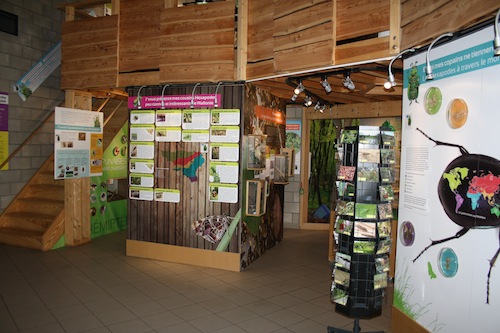Created 4 years ago, Hexapoda is managed by the “Environnement & Progrès” association. The insectarium works in a close collaboration with the ’functional and evolutive entomology unit of (ULg) the Gembloux Agro-Bio Tech (Ulg) and is one the actors of the Embarcadère du Savoir (pier of knowledge).
At the heart of this didactic space, people can discover the world of hexapods (among which insects) through an ongoing exhibition and a specially fitted garden, but also through temporary exhibitions, workshops, various activities….
Insects are vastly unknown to the public and they are often associated with pests, plagues, illnesses and the lack of hygiene ; although their contribution is vital in maintaining balance in every terrestrial and several aquatic ecosystems.

Their importance in human economy is also hard to translate into numbers. But what would we be without the pollinators thanks to which fruit trees and other cultures are able to reproduce, without the predators getting rid of several pests for us, without the necrophages and coprophages which respectively take care of decaying matter and excrements.
Insects are also one of the main courses in about 3000 ethnies out of Europe. Without them, lack of full proteins, some fats and sugars would be dire for millions of people in intertropical regions.
Such are they that we must present these hexapods to the vastest audience possible through an ongoing exhibition open all year long.
Natural history collections, but what for ?
The museal space has been enriched with numerous naturalized insect collections. They strenghten, explain and illustrate some of the most important aspects of the permanent exhibition. These collections mainly come from the Gembloux Agro-Bio-Tech Entomology unit of the Liège University (ULg) but also from the Central Africa Museum of Tervuren and the Field Museum of Natural History of Chicago.
Apart from their evident didactic contribution, all hexapods are part of the memory and diversity of a region, of a country, or of a specific fauna. Their importance is thus immeasurable. Collections are growing regularly thanks to Hexapoda personnel, researchers as well as scientific collaborators from the ULg and the donations of driven collectors.